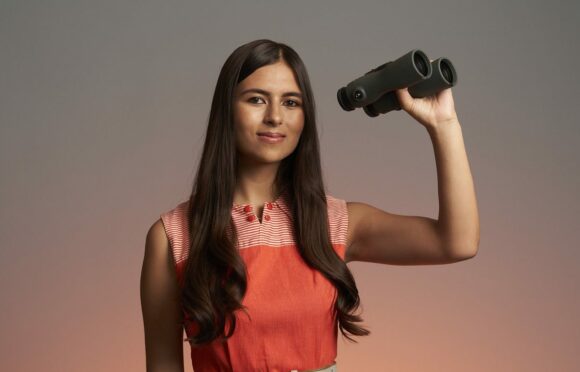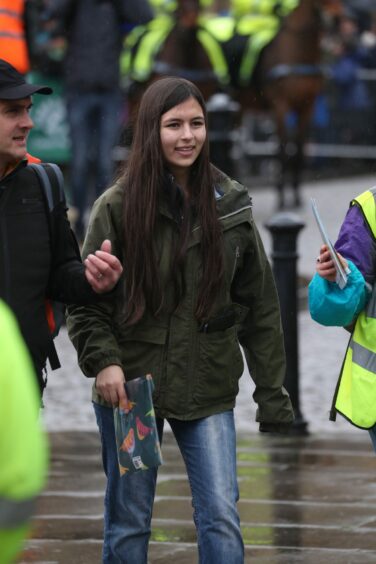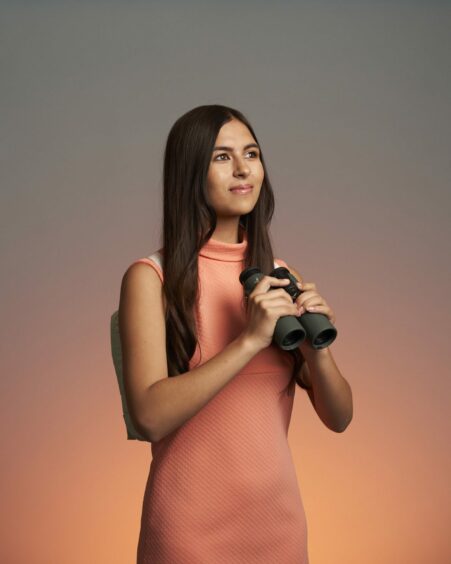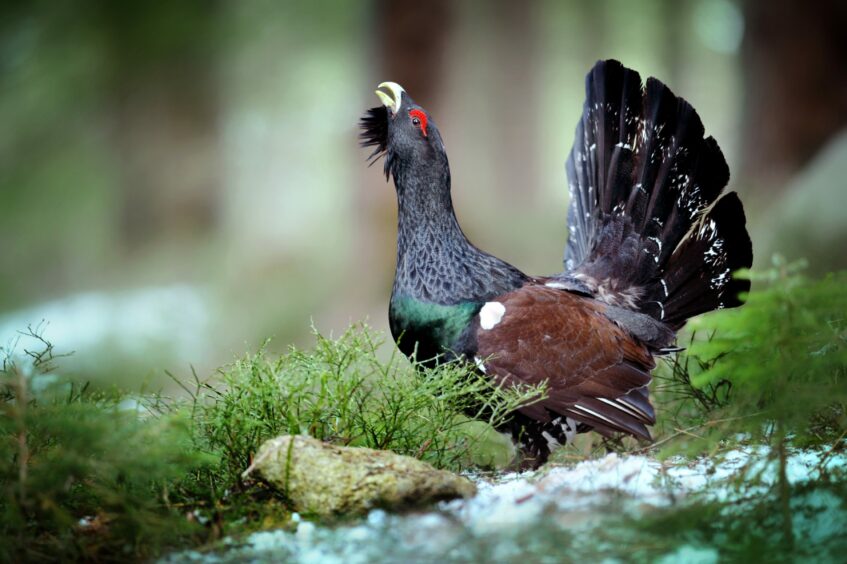
To some, climate change is something that happens in far-flung nations where birds of paradise soar.
But the recent extreme weather conditions here have led to warnings of droughts, wildfires and advice to stay indoors. For environmental activist and ornithologist Mya-Rose Craig, climate-change concerns landing so close to home underline the need to address the issue now.
“This is a social issue as well as an environmental issue and it is going to directly affect humans all over the world,” she said. “Historically, it’s been people saying what about the polar bears or tigers, and what about the people who live in India or the Arctic, but more recently there has been a push to remind people in the West that it will affect us here, too, and not just in places like Bangladesh or the Polynesian Islands.
“There’s been the heatwaves and fires, the snow storms in Texas, the floods in Germany – this is climate change and it is only going to get worse. People are already dying. Coming from the south-west of England, which has seen a lot of flooding, the words climate change are not mentioned when it is being reported. It’s important the issue is brought close to home. With the massive heatwave, people said the UK could do with a bit of warming but people have realised it’s been unpleasant and too hot.”
Twenty-year-old Craig came to prominence when she was 11 after she began a blog about bird-watching. She has campaigned on climate change and equal rights, and became the youngest person in Britain to receive an honorary doctorate in science from the University of Bristol in February 2020.
She is back in Scotland today to speak at the Edinburgh Book Festival about her new memoir, Birdgirl. It is her first time north of the border since she was in Glasgow last year for Cop26, the UN climate-change conference, where she took part in protests and was part of a discussion panel that included Greta Thunberg, Malala Yousafzai and Emma Watson.
Craig describes her five-day stay at the conference as a “strange experience”. “I was lucky enough to be both inside the conference and spend time on the streets, and I could feel the palpable difference in tone and urgency,” she explained.
“It felt like very little was being done or listened to but, on the flip side, there were thousands of people from all over the world protesting, trying to tell their leaders this was an issue they cared about. That was exciting for me but the conference was not.
“This isn’t a generation who want to be activists and have found an issue to talk about; this is a generation of people who are so deeply concerned about their future and the future of the planet that they feel they must do something. That is a direct symptom of our leaders and governments not doing anything about it, and people feeling there isn’t enough change happening.”
The climate issue should be an institutional matter rather than an individualistic one, argues Craig. She says focusing on individualism can make people feel they are not good enough to be involved, when the real focus should be on the big businesses.
She said: “One hundred corporations are responsible for 71% of the world’s carbon emissions. The narrative is about people not recycling enough or not driving our cars to school or work, when actually it doesn’t make a huge difference in the grand scheme of things.
“Focusing on individualism within the climate-change movement makes people feel they can’t involve themselves because they haven’t been perfect enough with their carbon footprint, which isn’t true because we need everyone involved.”
Twenty might be an unusual age to release a memoir but the British-Bangladeshi has not had a usual life. Her first bird-watching trip came at nine days old and she would go on to become the youngest person to see half of the world’s known bird species. She has travelled all over Britain and visited every continent thanks to her family’s obsession to track down more than 5,000 different birds, so she is well placed to speak on the impact climate change is having on our environment and nature.
However, when it came to writing the book, she realised she also needed to provide context as to why the family often undertook these trips. Her mother, Helena, has suffered from poor mental health and it was in bird-watching that the family found harmony and comfort. Craig said: “I’d always wanted to write a book and as I sketched out the idea I realised it wouldn’t be very compelling without including the personal details.
“For example, when my family essentially ran away to South America for six months, it would have seemed strange without knowing that my mum had been sectioned and we wanted to get out of the UK and go bird watching, as that was what kept us sane.
“I talked to my mum about it and the idea of telling her story in a really raw and honest way felt important to her and she was very enthusiastic about it. I feel with mental health, and illness in general, it’s so important to get stories out there in an unfiltered way, which is what this ended up being in many ways.”
Looking back, Craig can point to a moment early in her journey that proved pivotal in shaping her life.
She said: “There was an oil spill in Bangladesh and no one in the West was talking about it, so I wrote about it on my Birdgirl blog and it blew up. I had an article published in the United States and raised a lot of money. That was the moment when I realised that, even if no one else cared about an issue, I could still make a difference. That was when a lot of the activism and campaigning began for me.”
Craig also set up Black2Nature, a not-for-profit organisation to encourage visible minority ethnic (VME) children and teenagers to become involved in conservation.
“I’ve seen a lot of positive change, especially in the past couple of years, but there is still a long way to go,” she said, speaking about her efforts to have VME youngsters engage with nature. “Something as simple as people in the sector not wanting to have that conversation with me about potential racism and discrimination back when I started campaigning, who refused to talk to me about it even though it was clearly an issue, are now seeking to talk about it and speak about their own projects promoting equality and diversity within their organisations. That has been great.
“We’ve come a long way with the project since I ran my first camp as a 13-year-old with 13 kids. It’s nice to see kids having the opportunity to fall in love with nature and I hope there has been a big shift post-pandemic where more people want to go out into nature.”
Becoming Birdgirl: How author caught the birdwatching bug in Scotland
Scotland has been a favourite birdwatching destination for Mya-Rose Craig and her family over the years.
“My earliest memories of Scotland are looking for capercaillie and osprey,” she smiled. “I always look out for golden eagles while I’m there. In terms of twitching, it’s very good. When I was a kid, we went all the way to Orkney on a weekend to look for a crane that had flown over from America. We saw it and still made it back in time for school on Monday!
“As for other favourite birdwatching moments, in the UK it was when I saw a little auk in Weymouth last December. It was the last UK bird I’d still to see and it was becoming embarrassing admitting I’d never seen one. It was a very cute bird.
“Another memorable moment was seeing the harpy eagle in Brazil. I’d been trying to see it since I was eight and it took nine years. It’s ginormous. That was also the day when I reached the number of seeing half of the world’s bird species.
“My mum says she’s never seen me smile as wide as I did that day. I wondered if I was ever going to see it, but it was worth the wait.”
Mya-Rose Craig: Birdgirl’s Journey, Edinburgh Book Festival, today, 2.15pm

Enjoy the convenience of having The Sunday Post delivered as a digital ePaper straight to your smartphone, tablet or computer.
Subscribe for only £5.49 a month and enjoy all the benefits of the printed paper as a digital replica.
Subscribe

